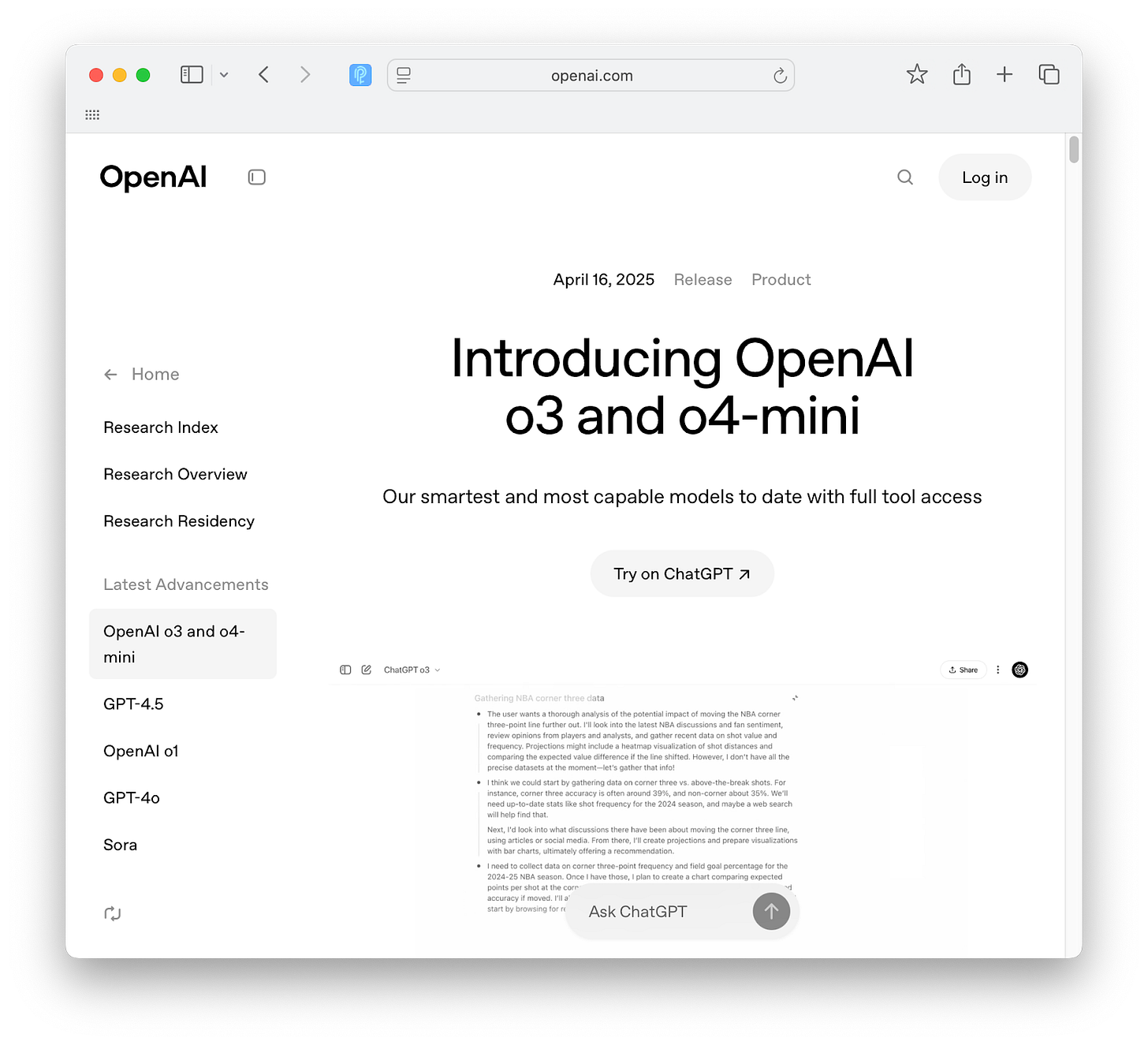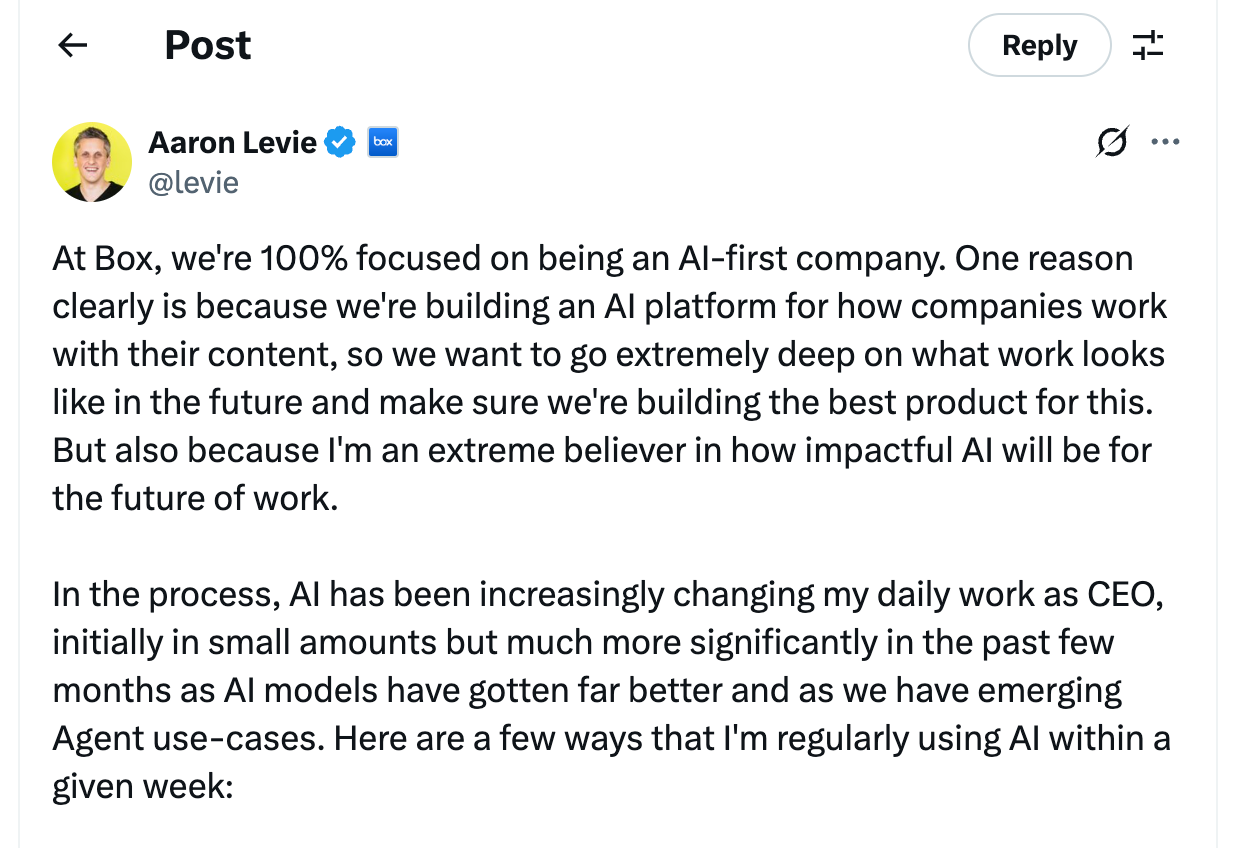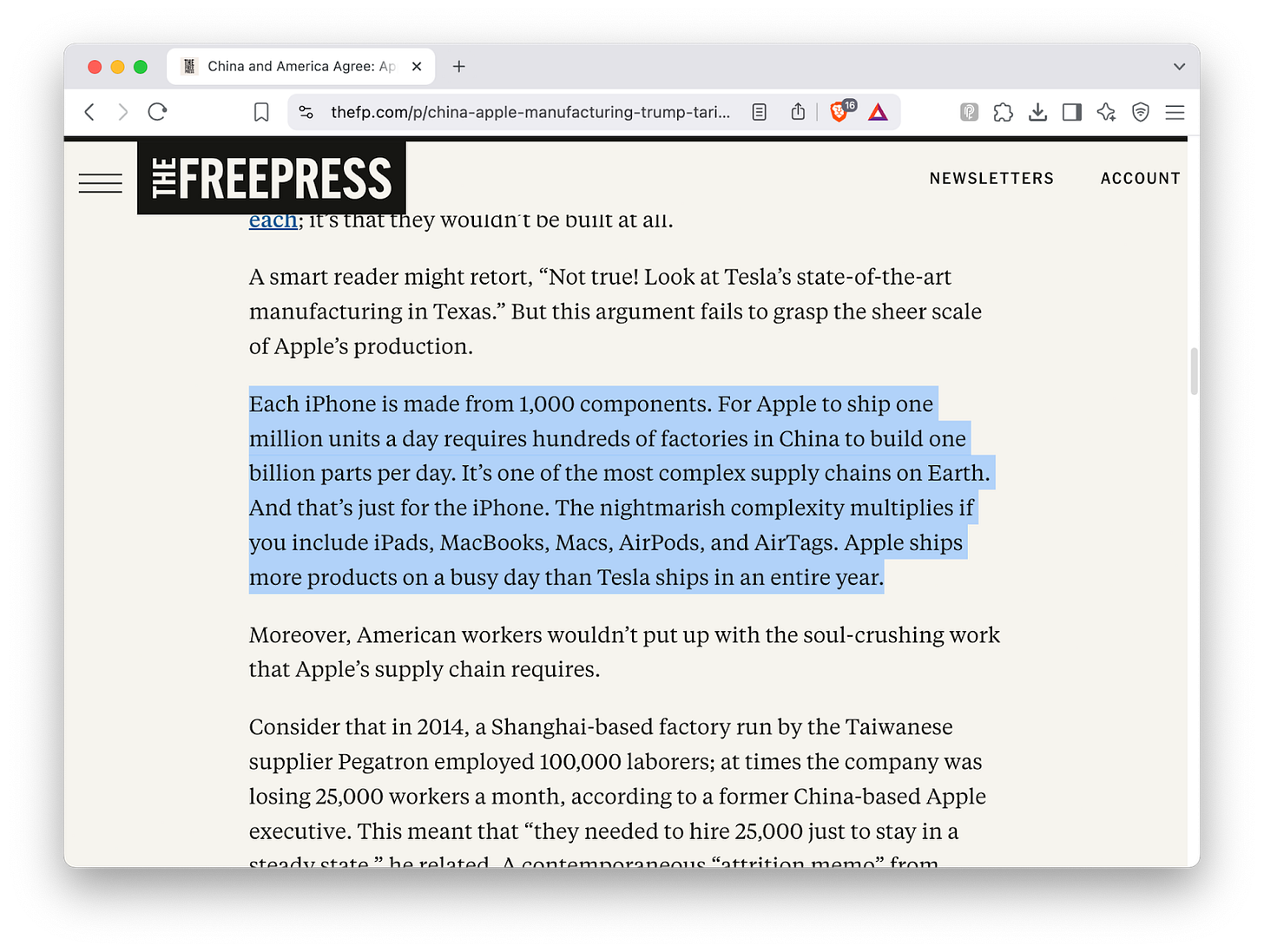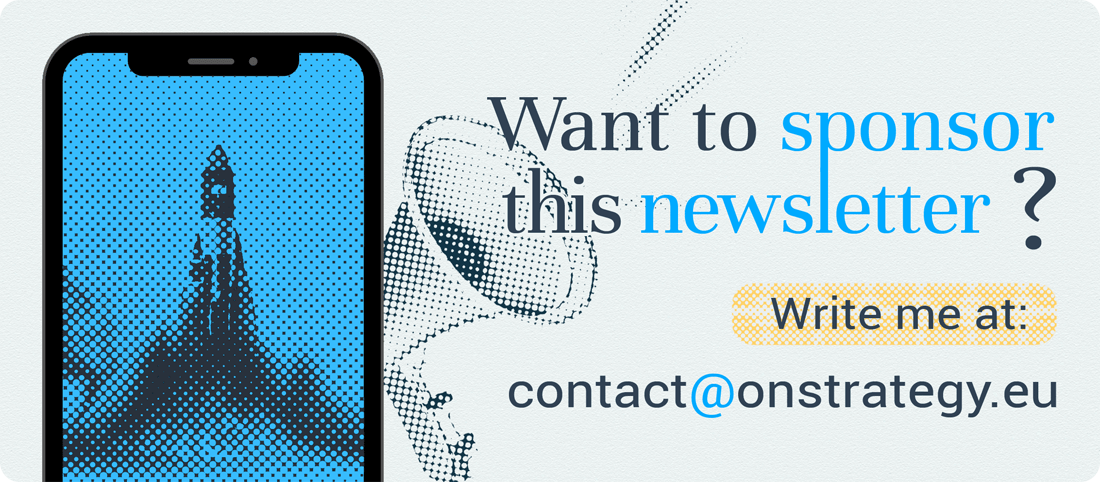(#123) 🍎 Apple and the decisions it must take
Is GPT 3o, AGI?
Developed by Bucharest Business School (BBS) in partnership with the Independent Directors Association (AAI), the Board Leadership Program aligns with international corporate governance standards and is currently undergoing endorsement by ecoDa. Backed by the school’s prestigious AMBA accreditation, it offers globally recognized executive education for senior leaders and board members.
Dear #onStrategy reader,
Here is what you’ll find in this edition:
🍎 Apple and the decisions it must take
🤖 Is GPT 3o, AGI?
👀 How Aaron Levie, Box’s CEO, is using AI
🚙 General Motors wants to reinvent itself. It will be hard and painful
Onto the update:
Apple and the decisions it must take
Ben Thompson published this week an analysis on his blog regarding Apple. So many good insights and parallels, that I want to mention a few here and why it matter:
1/ Apple isn’t doomed, not today at least, but it’s facing critical long-term strategic challenges. Ben Thompson compares Apple’s current AI struggle to historical tech missteps, like Microsoft’s late pivot to the Internet and Intel missing the mobile wave. Apple’s recent stumble with Siri and generative AI highlights a deeper issue: being too cautious and slow to leverage emerging technologies.
2/ As a parallel, Microsoft’s late but intense embrace of the Internet in the ‘90s is instructive. Bill Gates recognized the Internet’s transformative power, pivoting Microsoft hard enough to trigger antitrust battles. Yet, Microsoft’s true error wasn’t being late to the Internet, but misjudging the next platform shift, ie. mobile. Thompson suggests Apple risks a similar fate, betting too heavily on the existing smartphone paradigm and ignoring how a more open AI ecosystem could underpin future devices.
3/ Intel’s journey offers another cautionary tale. Intel excelled at performance, dominating the PC market, but overlooked the efficiency demanded by mobile devices. This strategic oversight sidelined Intel from the mobile revolution, significantly weakening its market position. Apple faces a parallel danger: its strict adherence to privacy and in-house AI solutions might isolate it from broader, innovative AI ecosystems and models.
4/ Apple’s insistence on privacy isn’t wrong per se, but its absolutist approach severely limits its ability to compete effectively in the AI era. Thompson argues that a fully open platform allowing third-party models (like ChatGPT or DeepSeek) would provide far superior user experiences compared to Apple’s struggling Siri. Apple’s current strategy keeps it locked into an inferior AI offering, which is increasingly a competitive liability.
5/ Tim Cook’s leadership, successful in managing Apple’s scale and profitability, may ironically become Apple’s Achilles’ heel. Cook has thrived by tightly controlling platforms, focusing on privacy, and optimizing supply chains, strategies that have worked well historically. But, as Thompson stresses, tech dominance today is determined by openness and agility, particularly in AI, where third-party integration can drive superior innovation.
6/ Apple also faces geopolitical vulnerability, specifically its heavy dependence on China. Thompson notes that while Tim Cook skillfully optimized Apple’s supply chain, the geopolitical landscape has changed drastically. The threat of disruptions, such as those potentially stemming from US - China tensions, highlights a dangerous strategic blind spot. Apple needs to proactively diversify its manufacturing base and reduce geopolitical exposure.
7/ Finally, Thompson’s ultimate conclusion is that Apple must pivot strategically and open its platforms more aggressively. Embracing third-party AI models and loosening its privacy stance (without abandoning it entirely) could future-proof the company. Intel’s late-found struggles serve as a clear lesson: Apple risks following the same path if it doesn’t adapt quickly. Now, not later, is the moment for Apple to act. LINK
Is GPT 3o, AGI?
1/ Tyler Cowen is openly suggesting GPT-3o marks the true arrival of Artificial General Intelligence (AGI), and his reasoning is straightforward yet provocative: GPT-3o performs well enough across an extremely broad spectrum of intellectual tasks that it’s hard not to call it general intelligence. Cowen highlights that GPT-3o has not only reached but surpassed many human intellectual capabilities, excelling particularly in complex domains like programming, mathematics, business strategy, and creative ideation. The leap from specialized tasks to a model that thinks, reasons, and utilizes multiple tools in an integrated manner marks a fundamental shift, challenging our traditional benchmarks and perceptions of intelligence itself  .
2/ Further supporting this view, GPT-3o isn’t merely reactive; it’s “agentic,” meaning it decides autonomously when and how to utilize tools like coding environments, web searches, and visual reasoning capabilities. This proactive, context-aware behavior was traditionally the domain of human intellect alone. Tyler argues this makes GPT-3o is effectively a general-purpose intelligence capable of sophisticated judgment and strategy, substantially reducing reliance on specialized human experts .
3/ Yet, the distribution of this intelligence raises critical societal questions. As Andrej Karpathy observes, technological power historically trickled down from elites to individuals. With GPT-3o, the distribution of benefits is initially widespread, almost democratically accessible, but how long will this last? As Karpathy warns, “Large organizations get to concentrate their vast resources to buy more intelligence. And within the category of ‘individual’ too, the elite may once again split away from the rest of society. Their child will be tutored by GPT-8-pro-max-high, yours by GPT-6 mini”.
For me, GPT 3o is AGI. Tyler Cowen, OpenAI, Andrej Kaprathy, Dan Shipper
How Aaron Levie, Box’s CEO, is using AI
Here are some insights:
1/ AI as a core capability
Box embedded AI deeply into how they operate and build products. Levie emphasizes that this approach transforms Box into an “AI-first company,” reinforcing the idea that artificial intelligence isn’t a feature, it’s foundational to their future.
2/ AI as the ultimate productivity tool
Levie personally leverages AI for tasks ranging from rapid prototyping to deep market research, dramatically accelerating his workflow. The speed and efficiency gains mean projects move faster, and expectations for productivity inevitably rise.
3/ AI lowers the cost of curiosity
Because AI handles routine and time-consuming tasks efficiently, the perceived “cost” of initiating research or exploration becomes nearly zero. Levie finds himself researching more frequently simply because AI makes it so easy, an example of technology shaping behavior by reducing friction.
4/ AI enables independent problem-solving
AI tools enable Aaron Levie to independently create prototypes, content strategies, and deep research without relying heavily on teams. This independence not only speeds up innovation but also reshapes organizational dynamics by making leaders and teams less interdependent.
5/ Human judgment still holds value (for wow)
Interestingly, Aaron Levie draws a clear line: certain strategic communications, like emails and company memos, remain completely human-driven. He believes deeply in the clarity gained from manual writing, suggesting there’s still a vital space for human intuition and reflection in an AI-dominated workflow. LINK
[Short essay] “Where is my supply chain?”
The good news is, Apple is still making iPhones. The bad news? Apple’s still making iPhones in China. So, sure, President Trump briefly toyed with slapping a 125% tariff on everything made in China, but the iPhone was quietly spared. Why? Because neither China nor America really wants Apple to stop making iPhones, certainly not abruptly. It’s not just that your EUR 1.000 smartphone would jump to EUR 3,500, it’s that the smartphone wouldn’t get built at all. You can’t simply transplant hundreds of factories, millions of workers, and billions of parts to America overnight (or really, at all). Even Trump seems to realize this, grudgingly.
Because the truth is, Apple’s supply chain isn’t just about cost, it’s about capability. It’s about scale. It’s about being able to produce one million iPhones per day, each requiring 1,000 separate components. Tesla’s shiny factories in Texas might look impressive, but compared to Apple’s global production ballet, they’re essentially artisanal workshops. Apple’s sheer volume dwarfs anything Tesla or frankly, any other manufacturer, can achieve. So relocating Apple’s entire supply chain? Good luck with that.
Even if you ignore the complexity (and please don’t), there’s the human side. Apple’s Chinese supply chain employs roughly three million people. Try moving even 20% of that workforce to the U.S., and suddenly you’re asking for special visas for about 600,000 Chinese workers. MAGA supporters might cheer tariffs, but importing half a million workers from China? Politically awkward, to say the least.
Then there’s China itself who, not incidentally, has all the leverage. They’ve quietly signaled that if Apple tries too aggressively to leave, supplies might mysteriously slow, rules may tighten overnight, and electricity might suddenly become “intermittently available.” This is China’s gentle way of saying: “Apple, we love you, but don’t get any funny ideas.”
Yet, there’s irony here: Apple’s success in China has trained local firms like Huawei and Oppo, who now build phones as good as, or better than, the iPhone. It turns out when you spend decades teaching a country how to manufacture your best stuff, eventually they become better than you at it. So, Apple’s stuck: the supply chain is too vast, too complex, and too politically fraught to easily shift.
And the kicker is that the Trump administration’s tariff whiplash creates exactly the uncertainty that makes supply chains miserable. Apple, a trillion-dollar symbol of American economic might, could see its valuation swing wildly, simply because nobody can predict what tariffs Trump might tweet tomorrow. Investors hate uncertainty even more than they hate tariffs.
So, where is the supply chain? It’s everywhere and nowhere you’d want it to be if you’re trying to simplify the geopolitics. Apple built the most sophisticated, interconnected, efficient supply chain in history and now finds itself handcuffed by its own success. Great for efficiency, terrible for resilience. Or politics. Or stability. But hey, at least your next iPhone isn’t EUR 3,500. Not yet, anyway. LINK
I just launched my book on strategy:
Through 28 chapters, I covered three parts: (1) Strategy, (2) Innovation & Growth, and (3) Generative AI.
See a full sample - the chapter on Network Effects. - click HERE










"Apple needs to proactively diversify its manufacturing base and reduce geopolitical exposure."
One day later: Hello, India 🇮🇳